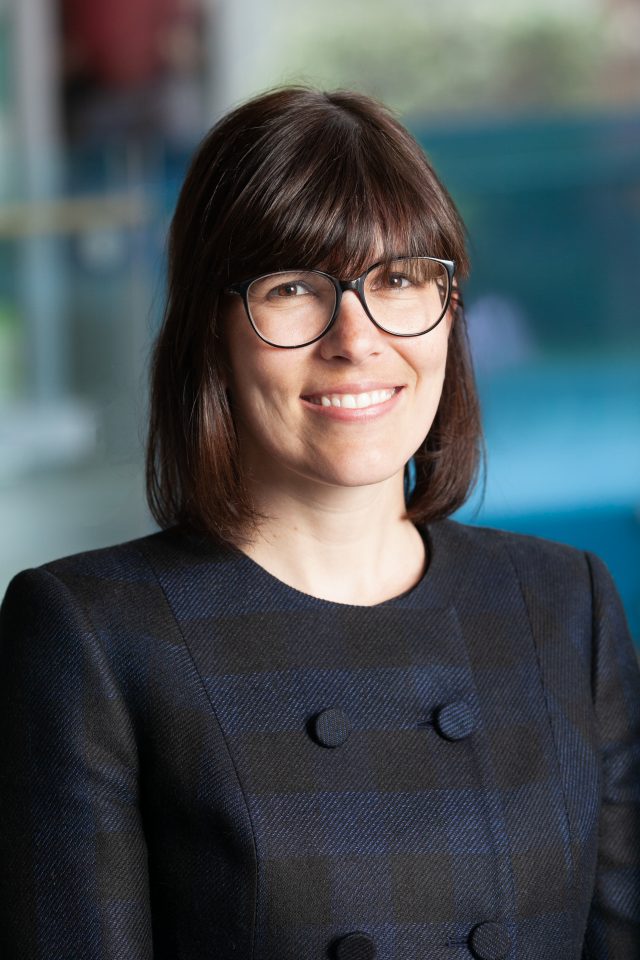Women in the UBC Department of Orthopaedics are making significant contributions in improving musculoskeletal health and patient care while inspiring and training the next generation of orthopaedic surgeons.
In recognition of International Women’s Day, the Department is highlighting a few of our many female faculty members and trainees.

Raphaële Charest-Morin
UBC Orthopaedics Clinical Assistant Professor – Division of Orthopaedic Spine Surgery
What inspired you to pursue a career in orthopaedics?
When I was first interested in orthopaedic surgery, I wondered if I would fit the template of a strong orthopaedic surgeon. I have to admit that I was not very strong, generally soft-spoken, and I did not practice any competitive sports. I was quickly reassured by my mentor who told me that being an orthopaedic surgeon had to come from your heart and not your muscles. Dedication, perseverance, and practice are what make the best orthopaedic surgeons. My training program (at Laval University, Québec), consisted of predominantly female residents, which was not a reflection of most orthopaedic programs at that time. At the end of my residency, there were more and more successful women orthopaedic surgeons. As a result, I have been surrounded by exemplary women all through my training. In my current practice as a spine surgeon at Vancouver General Hospital, women spine surgeons are still a minority, however, there are more and more female trainees that have completed a spine fellowship with our group. In recent years, I have been lucky to train superb, magnificent women who will be, without a doubt, leaders in the spine community.
As with most things in life, diversity is good. Having a broader range of personalities in the orthopaedic community is an advantage. Different personalities, irrespective of gender, will approach difficult pathologies in many different ways. Diversity leads to innovation and this is what drives the science behind our practice. I am proud to see my female colleagues succeed and get more and more recognition for their work. It inspires me to see different patterns of leadership emerge from this diverse community, particularly leaders that want to create a sense of unity. I hope that this diversity will inspire ambitious clinicians and researchers to consider orthopaedic surgery as a viable career choice, without being bothered by the impression that you need to fit the template.
What advice would you give to women wanting to pursue a career in the field of orthopaedics?
Residency can be demanding. I think the only pre-requisite to orthopaedic residency is to be passionate about everything that is connected to the specialty. Ask yourself if you would be happy with doing the bread-and-butter routine surgeries, not only the extravaganzas. If the answer is yes, your passion will radiate, and people will notice.
Don’t be shy! Through the years, I have noticed that it is not always the people who talk a lot that know the most. Speak up! A recent study from the National Bureau of Economic Research has shown that that women evaluate their performance less favourably than equally performing men. Similarly, women do not apply for jobs unless they are 100% qualified whereas men will apply if they meet only 60% of the qualifications. There is nothing wrong with being confident (not overconfident). Practice speaking up! Start with someone you are comfortable with. Find a mentor early on. A good mentor will know when to push you and will guide you in establishing a strong foundation for your career.